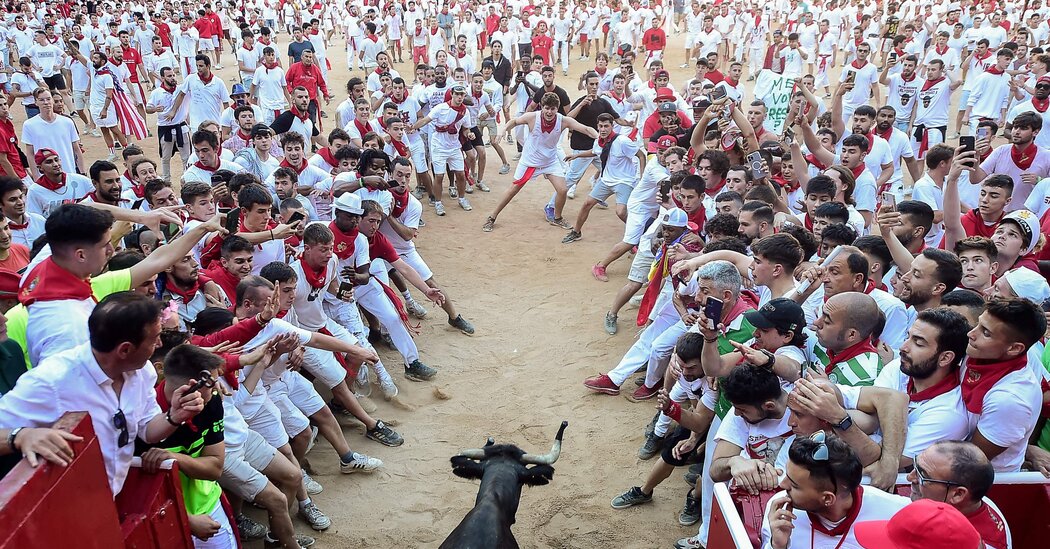For more than a week in the peak of summer, a sea of people dressed in red and white routinely cram the narrow, cobblestone streets of the northern Spanish city of Pamplona for the ceremonial running of the bulls, a heart-pounding, chaotic race that sometimes ends in severe injury or even death.
Known as “encierro,” the races returned this year after a two-year hiatus because of the coronavirus pandemic. They are the most famous part of the San Fermín Festival, which runs through Thursday.
Each morning, six bulls charge toward thousands of brave runners along a half-mile stretch of street to the city’s bullring, where later in the day the animals are killed by professional bullfighters, or toreros. The average duration of each race is less than four minutes.
The event is as dangerous as it looks. Five people, including one on Tuesday, have been gored during the six races so far this year, according to the local authorities. At least two dozen people have been treated for other injuries.
In 2019, the last time the races were run, eight people were gored during bull runs and 35 others were treated for other injuries, city officials said. Sixteen people have been killed in bull runs in Pamplona since 1910. The last death occurred in 2009, when a man was gored in the neck.
The festival is named after a bishop who was beheaded in the third century, according to city officials. By the Middle Ages, San Fermín was already being celebrated with religious ceremonies and a meal for the poor of the city. Over the years, music, comedies and other elements were added to the festival, and, in the 16th century, the celebration was moved to July from October, which coincided with a trade fair and organized bull fights. The festival grew even more popular in the 20th century with the development of transportation and the expansion of tourism.
The number of runners in a weekday bull run can reach 2,000, with nearly double that during the weekend races, but the tradition has been criticized by animal rights groups.
For the past 20 years, PETA and AnimaNaturalis, a Spanish animal rights group, have protested the bull runs. On the day before this year’s festival, dozens of demonstrators marched in the streets, some wearing dinosaur costumes to signify that the running of the bulls and the bullfights were relics from a less enlightened era.
Ingrid Newkirk, the co-founder of PETA, said in a statement that Pamplona’s event was a “cruel, disgusting gore-fest” and called…
Click Here to Read the Full Original Article at NYT > Travel…
